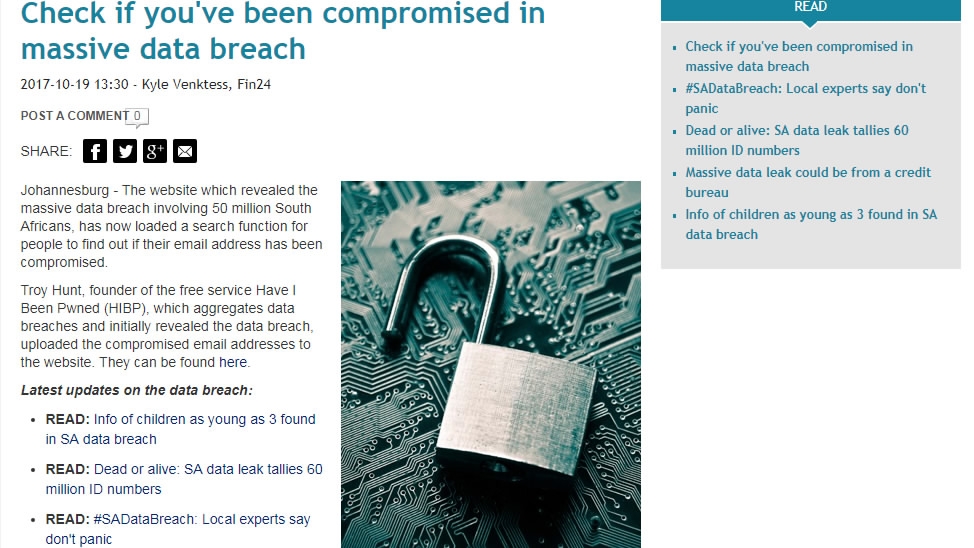
Tech & Sci
12:37, 21-Oct-2017
S. Africa’s biggest data breach affects 30 mln people
By CGTN's Angelo Coppola

What has been the largest data breach in South Africa’s history just got bigger. An Australian security researcher, who uncovered the original breach consisting of records for 30 million South Africans, has confirmed that the breach now involves 60 million files.
The leak, first revealed on Wednesday by Australian online security consultant Troy Hunt, contains the identity numbers, age, location, marital status, occupation, estimated income, addresses and cellphone numbers of South Africans.
The breach covers 57 million living South Africans scattered across the globe, as well as of nine million deceased citizens.
It was found on an unprotected computer server at Jigsaw, a property holding company. The company immediately removed the file when they were told.
The problem is nobody knows how many times this file has been accessed or downloaded. It allows for identity theft on a national scale, to be possible, if anyone nefarious or a cybercriminal has managed to get access to this file.

A website outlines a detailed guide on how users affected by the data breach could check if they've been compromised. /fin24 Photo
A website outlines a detailed guide on how users affected by the data breach could check if they've been compromised. /fin24 Photo
Perhaps more concerning is that companies in South Africa are allowed to gather this type of information.
"So without our consent, all of this vast information about our private lives has been collated by a property company who has now exposed it to the Internet," Toby Shapshak, editor in chief of Stuff Magazine said.
While South African citizens will in the near future be able to rely on the Protection of Personal Information Act for legal recourse against companies guilty of exposing personal information electronically, that's not the case at the moment.
Until this POPI Act is properly implemented, the implications are at the moment that an individual would have to actually sue them individually for damages, if you suffered damages and if you proved damages.
South Africa’s State Security Agency said they’re currently investigating the matter.
11676km

SITEMAP
Copyright © 2018 CGTN. Beijing ICP prepared NO.16065310-3
Copyright © 2018 CGTN. Beijing ICP prepared NO.16065310-3